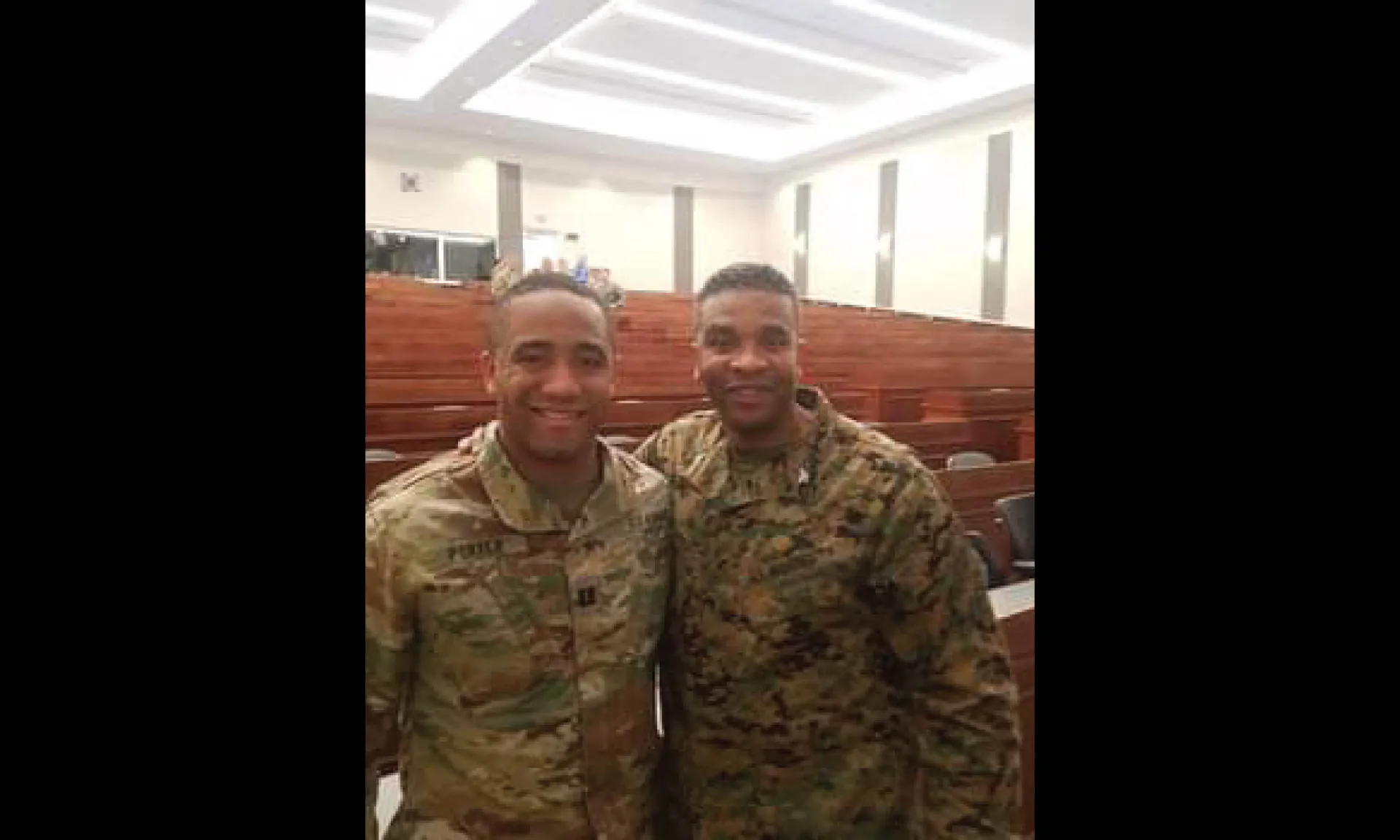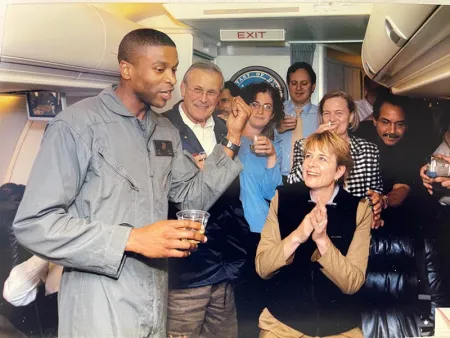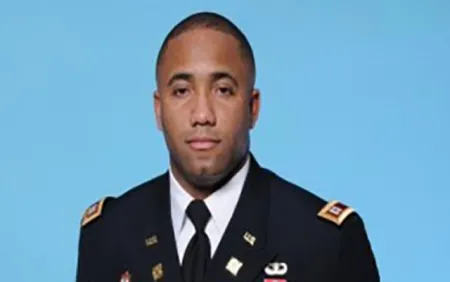If anyone was within earshot of the two military officers greeting one another that day in Quantico, Va., they might have gone on high alert hearing one proclaim, “Go Bombers.” But this wasn’t a military order. It was IC alumnus U.S. Army Major Jason A. Porter ’09 introducing himself to U.S. Marine Colonel Ricardo T. “Riccoh” Player ’89.
Player was a guest lecturer at the Marine Corps University where Porter was studying for his Master of Military Studies degree, and Porter arranged an introduction.
“You just don’t hear about people from Ithaca College going into the military—especially ethnic minorities from Ithaca College,” Porter said. “I realized how much we had in common. We just kind of hit it off.”
Both joined the military immediately after graduation and neither expected more than their minimum stint in the service. However, both have made the military their career and drawn upon their IC experiences to take unconventional paths to their leadership positions, championing diversity and inclusion all the while.


